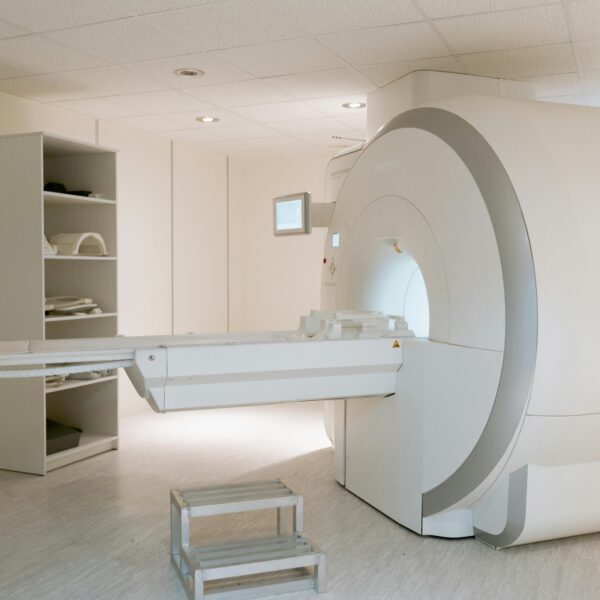The healthcare industry is experiencing significant changes in its hiring practices, with a shift towards skill-centric hiring rather than academic-centric hiring. Traditionally, healthcare organizations have heavily relied on academic qualifications as a primary factor in their hiring decisions. However, there is now a growing recognition that skills and experience are equally important in determining the success of healthcare professionals.
Skill-centric hiring focuses on identifying candidates who possess the necessary skills and competencies required for specific roles within the healthcare workforce. This approach acknowledges that academic qualifications alone do not guarantee proficiency in practical tasks and patient care. Instead, employers are placing greater emphasis on evaluating candidates’ abilities to handle real-world situations effectively.
One of the key drivers behind this trend is the changing landscape of healthcare itself. The industry has become more complex, demanding professionals who can adapt quickly to new technologies, procedures, and patient needs. By prioritizing skills over academic achievements, organizations can ensure that they have a workforce capable of meeting these evolving challenges.
Furthermore, as the demand for qualified healthcare professionals continues to grow rapidly, staffing agencies play an essential role in connecting employers with suitable candidates. These agencies specialize in sourcing talent from diverse backgrounds and ensuring that they meet both skill requirements and cultural fit within an organization. Read below to learn more about the coming cultural changes and how they may effect those looking for jobs.
The Limitations of Academic-Centric Hiring in the Healthcare Sector
There has been a growing debate on the importance of practical skills versus academic qualifications in healthcare. While academic qualifications provide a solid theoretical foundation, practical skills are equally vital in delivering quality patient care and effectively navigating the complex healthcare landscape.
One of the challenges with an academically-centric hiring approach in healthcare is that it may not accurately reflect an individual’s ability to perform in real-world situations. Theoretical knowledge gained through academic programs may not always translate seamlessly into practical application. This can result in a mismatch between what is taught in classrooms and what is needed on the front lines of patient care.
Furthermore, an overemphasis on academic qualifications can lead to a lack of diversity and exclusion of individuals who possess valuable practical skills but may not have formal educational credentials. Many aspiring healthcare professionals acquire hands-on experience through internships, volunteering, or working as support staff before pursuing formal education. These individuals bring unique perspectives and problem-solving abilities that can greatly benefit the industry but might be overlooked solely based on their lack of traditional academic qualifications.
Another challenge with an academically-focused hiring approach is that it tends to favor theoretical expertise over important soft skills such as communication, empathy, teamwork, and adaptability. These interpersonal skills are crucial for effective patient care and building strong relationships within multidisciplinary healthcare teams. However, they are often difficult to measure solely through academic achievements, which is where skill-centric hiring comes in.
How Skill-Centric Hiring Impacts Healthcare Workers
In the healthcare industry, having the right skills and qualifications is crucial for both professionals and employers. Healthcare skills refer to the specific abilities and knowledge required to perform tasks effectively in various healthcare settings. These skills can range from clinical expertise, such as diagnosing illnesses or administering treatments, to communication skills, empathy, and critical thinking.
Healthcare qualifications typically include educational degrees, certifications, licenses, and specialized training that validate an individual’s competency in a specific healthcare field. For example, doctors must complete medical school and obtain a license to practice medicine.
When it comes to hiring in healthcare, there has been a shift towards skill-based hiring practices. This means that employers prioritize candidates’ demonstrated abilities rather than solely relying on formal qualifications. Skill-based hiring recognizes that practical experience and proficiency are equally important in delivering quality care.
By focusing on skills rather than just credentials, employers can ensure that their workforce possesses the necessary competencies to meet the demands of modern healthcare. This approach allows for a more inclusive recruitment process by considering candidates with non-traditional backgrounds who may have acquired valuable skills through different pathways. Implementing skill-based hiring practices also benefits job seekers as it emphasizes their capabilities over specific degrees or certifications they may not possess. It provides an opportunity for individuals with relevant experience or transferable skills to enter the healthcare field even without traditional qualifications.
The Future Implications and Challenges of Skill-Centric Hiring in Healthcare Staffing
This significant trend shift towards skill-centric hiring practices has a great deal of potential benefits, but comes with it’s own challenges. In terms of benefits, it allows for a more inclusive approach to recruitment, as individuals without traditional qualifications but possessing relevant skills can be considered for roles they may excel in. This promotes diversity and equal opportunities within the workforce.
However, implementing skill-centric hiring practices brings the challenge of accurately assessing an individual’s skills during the recruitment process. Traditional methods such as resumes and interviews may not effectively gauge a candidate’s true abilities or potential for growth.
To overcome this challenge, many organizations are turning to innovative solutions such as skills assessments and simulations. These tools provide a more objective evaluation of an individual’s capabilities and allow recruiters to make better-informed decisions. Another way to address these challenges is to use staffing firms that specialize in specific disciplines. Using well-trained staffing teams ensures that companies are able to focus on limited high-quality candidates who are actively interested in the role instead of weeding through stacks on resumes.
If your company is looking to hire, connecting with a Radius recruiter about your needs is the right place to start. Consider skills and qualifications of your ideal candidates and let Radius make recruiting that much easier. Click here to connect with a recruiter today!











